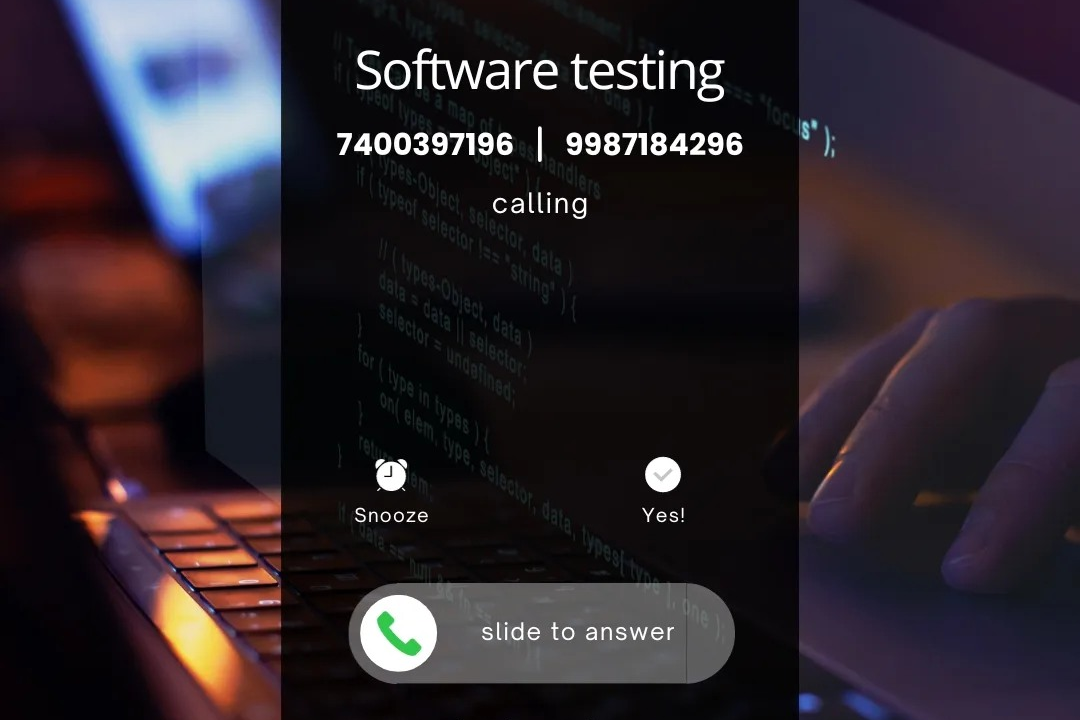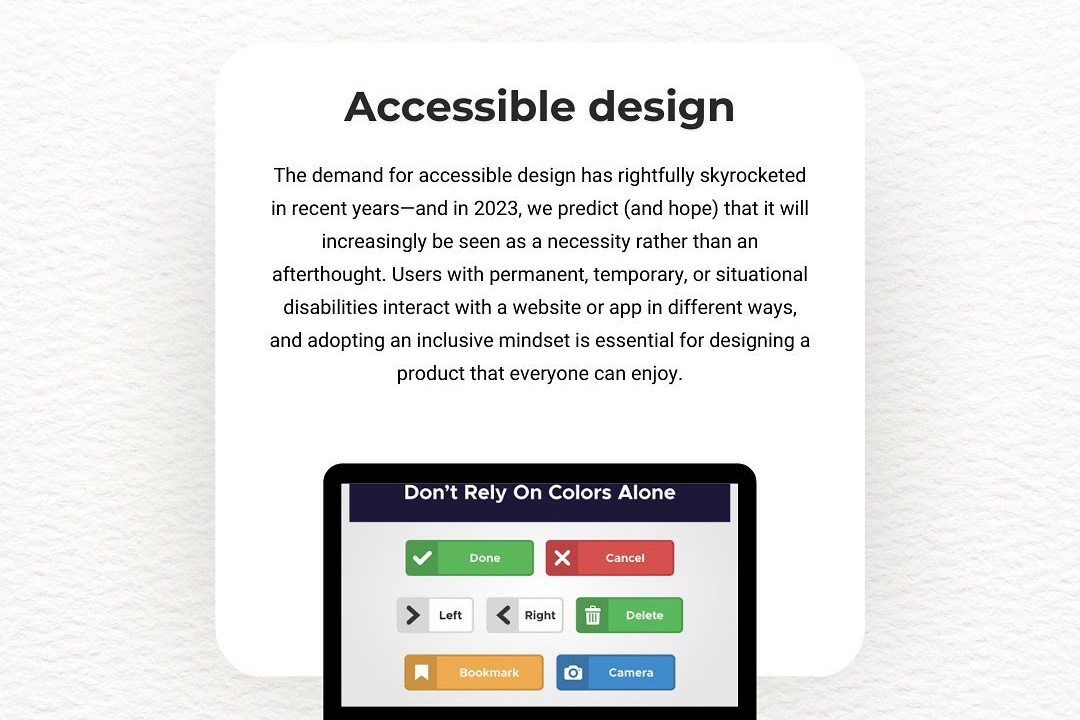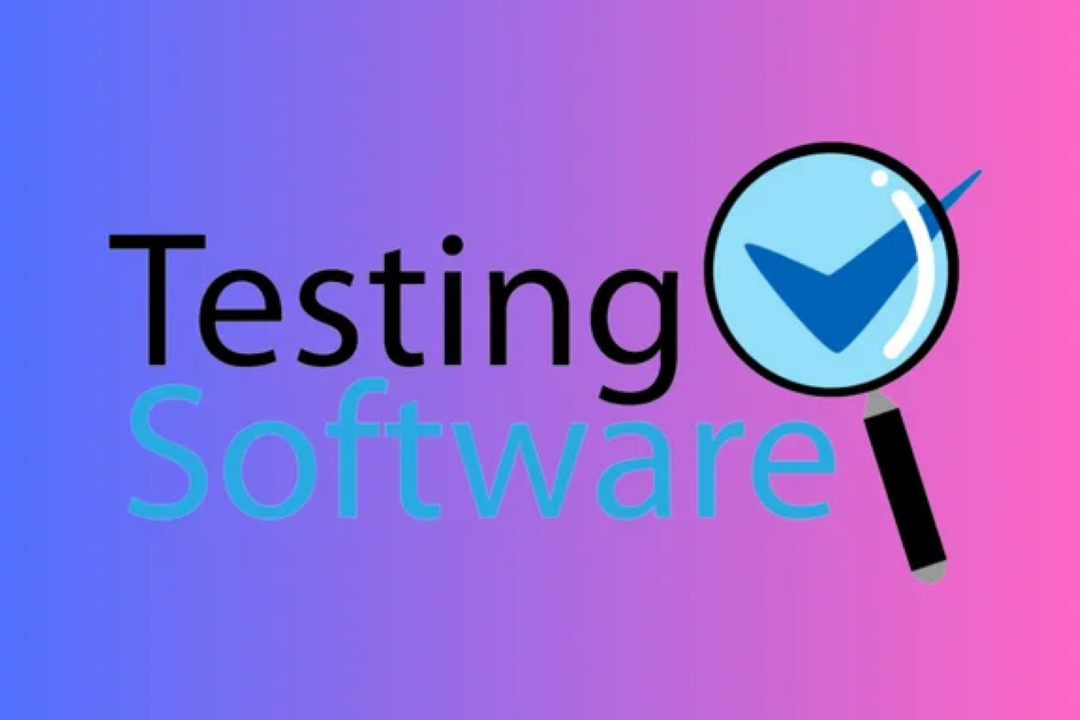appium interview questions SE
Appium interview questions typically focus on assessing a candidate's understanding of mobile applic
appium interview questions SE
Appium interview questions are essential for evaluating a candidate's expertise in mobile application testing and their proficiency with the Appium framework. These questions help assess a candidate's understanding of key concepts such as Appium's architecture, the differences between Android and iOS testing, and the ability to handle various testing scenarios, including gestures and context switching. By exploring real-world project experiences and problem-solving skills, interviewers can gauge a candidate’s readiness to engage in effective mobile automation testing. This not only ensures that the candidate possesses the technical knowledge needed for the role but also highlights their capability to contribute to the development of robust, high-quality mobile applications.
To Download Our Brochure: https://www.justacademy.co/download-brochure-for-free
Message us for more information: +91 9987184296
Appium interview questions are essential for evaluating a candidate's expertise in mobile application testing and their proficiency with the Appium framework. These questions help assess a candidate's understanding of key concepts such as Appium's architecture, the differences between Android and iOS testing, and the ability to handle various testing scenarios, including gestures and context switching. By exploring real world project experiences and problem solving skills, interviewers can gauge a candidate’s readiness to engage in effective mobile automation testing. This not only ensures that the candidate possesses the technical knowledge needed for the role but also highlights their capability to contribute to the development of robust, high quality mobile applications.
Course Overview
The “Appium Interview Questions SE” course is designed to equip participants with a comprehensive understanding of the Appium framework, focusing on the most frequently asked interview questions for Software Engineers (SE) in the mobile testing domain. This course covers key concepts such as Appium architecture, test automation strategies for both Android and iOS platforms, and practical demonstration of real-time project situations. Participants will engage in hands-on exercises, explore best practices, and familiarize themselves with the nuances of mobile application testing to enhance their interview skills and boost their confidence. By the end of the course, learners will be well-prepared to tackle Appium-related questions in job interviews, positioning themselves as strong candidates in the competitive tech landscape.
Course Description
The “Appium Interview Questions SE” course is designed to prepare aspiring Software Engineers for interviews focused on mobile application testing using the Appium framework. This course provides an in-depth exploration of commonly asked interview questions, covering critical topics such as Appium architecture, automation strategies for Android and iOS applications, and real-time project implementation. Participants will engage in practical exercises, enhancing their understanding of mobile testing principles and best practices. By the end of the course, learners will confidently tackle Appium-related questions, equipping them with the skills needed to excel in technical interviews and stand out in the competitive job market.
Key Features
1 - Comprehensive Tool Coverage: Provides hands-on training with a range of industry-standard testing tools, including Selenium, JIRA, LoadRunner, and TestRail.
2) Practical Exercises: Features real-world exercises and case studies to apply tools in various testing scenarios.
3) Interactive Learning: Includes interactive sessions with industry experts for personalized feedback and guidance.
4) Detailed Tutorials: Offers extensive tutorials and documentation on tool functionalities and best practices.
5) Advanced Techniques: Covers both fundamental and advanced techniques for using testing tools effectively.
6) Data Visualization: Integrates tools for visualizing test metrics and results, enhancing data interpretation and decision-making.
7) Tool Integration: Teaches how to integrate testing tools into the software development lifecycle for streamlined workflows.
8) Project-Based Learning: Focuses on project-based learning to build practical skills and create a portfolio of completed tasks.
9) Career Support: Provides resources and support for applying learned skills to real-world job scenarios, including resume building and interview preparation.
10) Up-to-Date Content: Ensures that course materials reflect the latest industry standards and tool updates.
Benefits of taking our course
Functional Tools
1 - Appium: Appium is an open source tool that enables automated testing for mobile applications on multiple platforms such as Android and iOS. It uses the WebDriver protocol to communicate with mobile apps, allowing testers to write tests in various programming languages including Java, Python, Ruby, and C#. The versatility it offers makes it a preferred choice for many organizations, promoting a seamless testing experience across different devices and environments. Students will learn how to set up Appium, create test scripts, and execute tests, building a strong foundation in mobile automation.
2) Selenium: Selenium is primarily known for web application testing but plays a vital role in mobile automation when used in conjunction with Appium. Understanding Selenium's WebDriver helps students grasp how to manage interactions with mobile application elements, enhancing their ability to automate and run tests effectively. The course will cover how Selenium’s robust capabilities complement Appium, allowing students to develop comprehensive testing solutions that address both mobile and web application challenges.
3) TestNG: TestNG is a testing framework inspired by JUnit but designed to accommodate a wider range of testing needs. It provides features such as annotations, data driven testing, and parallel execution, which are essential for mobile test automation. Students will be equipped with the skills to organize test cases efficiently, leverage testing reports, and execute tests concurrently, ultimately enhancing the execution speed and flexibility of their mobile testing processes.
4) Jenkins: Jenkins is a popular open source automation server that facilitates continuous integration and continuous delivery (CI/CD). In this course, students will learn how to integrate Appium tests with Jenkins to automate the testing process as part of their development workflow. This knowledge empowers participants to streamline their testing efforts, ensuring that tests are executed automatically in response to code changes, which helps maintain a high level of software quality throughout the development lifecycle.
5) Appium Desktop: Appium Desktop is a graphical user interface that simplifies the process of managing and executing tests with Appium. Students will explore how to use this tool for inspecting mobile applications, finding element locators, and debugging tests. Learning to use Appium Desktop enhances the practical skills of students, as it provides a visual way to interact with their mobile app’s layout and UI components, making it easier to develop and refine their automated tests.
6) Appium Inspector: The Appium Inspector is a part of the Appium Desktop application that allows testers to visually inspect the hierarchy of mobile app UI elements. This tool aids in identifying how to locate specific elements within the application, a crucial step when writing test scripts. Students will learn how to utilize Appium Inspector to extract details about element properties, which helps in creating reliable and efficient test scripts that accurately interact with UI components.
Certainly! Here are additional points that can enhance the article about mobile automation testing courses offered by JustAcademy:
7) Mobile Device Farm: A mobile device farm is a platform that allows testers to run their automated tests on real devices hosted in the cloud. This course will introduce students to different mobile device farms such as BrowserStack, Sauce Labs, and Firebase Test Lab. Learners will discover how to set up their testing environments in the cloud, providing access to a wide range of devices, operating systems, and screen resolutions. This knowledge ensures that tests are executed efficiently across different environments without the need for extensive physical device management.
8) Cucumber for BDD: Cucumber is a tool for Behavior Driven Development (BDD) that allows stakeholders to understand the specifications of a project through readable tests. This course section will explore how to write tests in Gherkin language, enabling students to create scenarios that are human readable and facilitate collaboration between technical and non technical team members. Understanding Cucumber will help students implement BDD practices in their mobile automation projects, leading to higher quality outcomes and better alignment with business requirements.
9) Mobile App Architecture Understanding: A solid understanding of mobile app architecture is vital for effective testing. Students will learn about various architecture patterns, such as MVC (Model View Controller), MVVM (Model View ViewModel), and Clean Architecture. This knowledge will assist them in comprending how mobile apps are structured, which in turn allows for better test planning and the creation of targeted automated tests that cover various aspects of an application’s functionality.
10) Test Case Management: Effective test case management is critical for any testing effort. In this course, students will learn how to design and organize test cases, including best practices for writing clear and reusable test cases. This section will cover tools like TestRail or Zephyr that help in managing test cases, tracking results, and generating reports. By mastering test case management, students can ensure comprehensive coverage and traceability in their mobile testing efforts.
11 - Reporting and Analytics: Robust reporting and analytics are essential for understanding test outcomes and improving testing processes. This course will introduce students to techniques for creating detailed reports that summarize test results, identify trends, and pinpoint areas for improvement. Learning to use tools such as Allure or ExtentReports will enable students to enhance their reporting capabilities, making it easier for their teams to visualize test progress and quality metrics.
12) Error Handling and Debugging: Students will gain insights into common errors encountered during mobile testing and the strategies to handle them. This includes exception handling in test scripts and techniques for debugging automated tests effectively. By mastering error handling and debugging, students will be better equipped to ensure their tests run smoothly and can address any issues that arise during execution.
13) Cross Platform Testing Strategies: With many apps being developed for both Android and iOS platforms, understanding cross platform testing strategies is crucial. This course segment will cover best practices for ensuring that tests are adaptable and maintainable across multiple platforms. Students will learn how to leverage frameworks such as Xamarin or React Native and how to write tests that work seamlessly, regardless of the operating system.
14) Continuous Testing: The concept of continuous testing in DevOps helps organizations ensure software quality throughout the software delivery lifecycle. This course module will cover the principles of continuous testing and how to integrate mobile automation tests into CI/CD pipelines. Students will grasp how to automate their testing strategies to ensure rapid feedback and maintain high quality standards as software is continuously deployed.
15) Performance Testing for Mobile Apps: Performance is a key consideration for mobile applications. This course will introduce students to performance testing concepts, including load testing and stress testing, specifically tailored for mobile environments. Participants will learn how to identify performance bottlenecks using tools like JMeter or Locust, ensuring that mobile applications are not only functional but also high performing under various conditions.
These additional points further enrich the mobile automation testing course offerings at JustAcademy, ensuring students receive a comprehensive and well rounded education that prepares them for real world challenges.
Browse our course links : https://www.justacademy.co/all-courses
To Join our FREE DEMO Session:
This information is sourced from JustAcademy
Contact Info:
Roshan Chaturvedi
Message us on Whatsapp: +91 9987184296
Email id: info@justacademy.co
Flutter How To Identify Current Mobile Language











